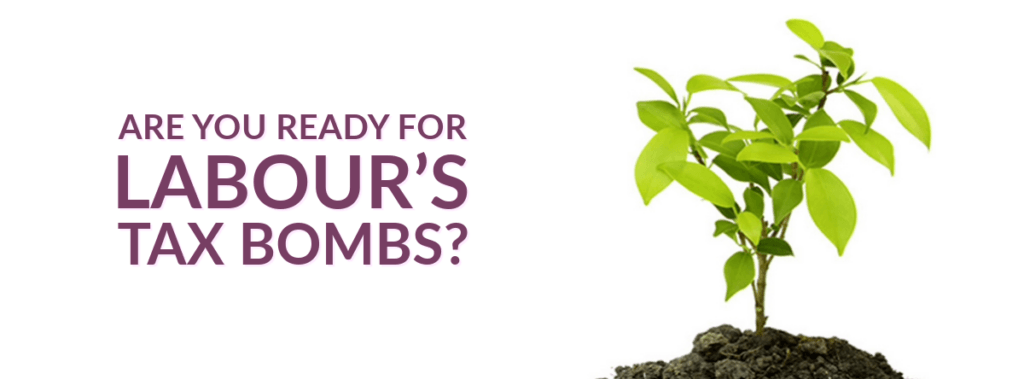Are you ready for Labour’s Tax bombs?

When I started work in 1979 , the top rate of tax was 98%: 83% income tax plus a 15% surcharge on investment income. If you don’t believe me then Google it!
I wasn’t earning enough in those early days to pay this tax rate myself but my boss was and he seemed to spend at least half of his working day trying to find ways around it.
It now seems almost certain that we will have a Labour government by the end of this year so what can we expect them to do on the tax front? So far, they have kept their tax plans deliberately vague for fear of frightening the electors. They have said that they will impose VAT on private school fees. I doubt it will generate much tax revenue but the parents who pay school fees don’t generally vote Labour so they don’t mind about alienating them. They have also said they are going to end the tax concessions for non-doms. This too will raise very little money: most of them will simply leave the country but foreign nationals aren’t allowed to vote in a UK election so they don’t care. However, these tax increases are not nearly enough to pay for all their spending pledges or to satisfy their ideological zeal to tax the rich. So what else are they likely to do?
As a business sales broker my greatest fear is that they will get rid of the 10% tax rate for people who sell a business (the business asset disposal relief scheme). If they do, the owner of a business worth £1 million will pay £200,000 tax on the sale proceeds rather than £100,000. We are already getting a huge number of enquiries from people wanting to complete a sale before the expected election date in November. However, If this tax charge does come in then a lot of business owners who miss the deadline will postpone their sales and the government will get 20% of nothing.
A second concern is that they might abolish capital gains tax altogether. This would mean that everyone would pay income tax at up to 45% on all their income however it was earned. This would be catastrophic. Buy-to-Let landlords would not be able to sell their properties and shareholders would not want to dispose of their shares. It would bring the economy to a grinding halt and have a huge impact on estate agents and letting agents. I doubt this would raise much tax either because investors would postpone their sales but it is a policy that would no doubt generate very positive headlines in the tabloid press and any attempt to reverse the policy would be difficult because it would be seen as tax cuts for the wealthy.
The greatest threat however is the risk of a recession. The top 10% of taxpayers pay around 60% of all tax revenue and the top 1% pay almost 30% If large tax increase are introduced then there is a great deal that these people can do to avoid paying them. Some will leave the country. Some will pay expensive tax lawyers to find ways around the legislation. Some will delay taking their capital gains. Some might just retire early.
The loss of tax revenue could be huge. When Margaret Thatcher reduced the top rate of tax to 40% in 1989, there was an immediate increase in the amount of tax that was collected from higher rate taxpayers. It is well understood that when the tax rate increases above a certain rate the amount of revenue actually reduces.
So, what can you do to prepare for all this? If you don’t want to leave the country and can’t afford £1000 per hour for a top-notch tax adviser your options are to sell your business, your shares and your property investments now to crystalize your capital gains at the current rate and advise your clients to do the same thing. Then batten down the hatches and wait for the electoral cycle to run its course and for the storm to blow over.
I hope that I am wrong about all this and that our next government will have Blairite tendencies not Corbyn-like tendencies but as the old saying says, we should hope for the best and prepare for the worst.
Adam Walker is a business sales broker who has worked in the property sector for over 40 years.
